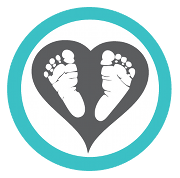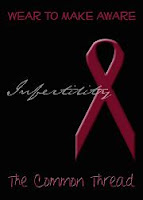Day three in Hawaii began again before sunrise. In all honesty, I think we're misplaced Hawaiians. We keep a much better schedule here! After an early breakfast of Kona coffee and blueberry muffins, we spent the entire morning at the beach.
Mr. Sandman
Breaking Free
After a morning at the lagoons, we headed out for an afternoon in Honolulu. Per your request, here I am in front of the lens.
Babbit felt left out
I left the snacks and drinks behind (again), so we stopped at the 7-11. Though I love the Asian influence here, for some reason I was really grossed out to find sushi offered on the 7-11 value menu.
I looked over the selection of sushi rolls and bento boxes, and even took a picture of the sushi cooler (as you can see).
But as I planned to tell James how gross I thought it was, I remembered our local 7-11 sells enormous burritos filled with who knows what and calls them "Da Bomb." At that moment, a spicy tuna roll didn't sound so bad.
Moving on.
Once in Honolulu, Babbit checked out Chinatown...
... and the Capitol Building of Hawaii.
He admired the state seal...
... as well as a statue of Queen Liliʻuokalani,
the last monarch in the Kingdom of Hawai'i.
After that, we visited 'Iolani Palace,
the only royal palace used as an official residence
by a reigning monarch in the United States.
The kids were particularly amazed by the huge banyan trees out back.
After learning about the political history of Hawaii,
we spent some time exploring a very tiny bit
of Hawaii's religious history by visiting Kawaiaha'o Church,
once the National Church of Hawaii and chapel for the royal family.
Kawaiaha'o Church has been called
the Westminister Abbey of Hawaii.
Kawaiaha'o Church is also called The Stone Church,
as it is built from tons of hand-chiseled coral.
The interior of the church where parts of the services
are still preached in the native Hawaiian tongue.
The Tomb of King William Lunalilo,
the shortest reigning monarch in Hawaiian history,
and the only Hawaiian monarch to be buried among his people.
We finished our day at the Mission House museum learning about the introduction of Christianity to the islands.
Hawaii has such a rich and interesting history, and it's remarkable just how closely the religious and political aspects intertwine. Here is my very limited understanding:
Hawaii was a nation of "savages," as early Americans would say. The Hawaiian people had a set of religious beliefs that particular members of the Hawaiian monarchy eventually became tired of. For example, men and women could not eat together -- a small, but very important, bit of information. One of the wives of a great king (can't remember who) decided there was something wrong with not being able to share a meal with her husband, so she began pressing to have those "old ways" overthrown. Later, when he became King, her son effectively did as she wanted.
About the time the religious beliefs of the Hawaiian people were called into question, Christianity arrived on the scene. Missionaries were embraced by the government and were given land on which to build. The missionaries preached to and taught the native Hawaiians, making Honolulu the homebase for operations throughout the islands. Missionaries brought tools, supplies, and education.
Christianity filled the religious void in many ways, however, years later when the mission board decided the job here was done, some of the missionaries (and many of their grown children) stayed behind to become wealthy land owners. Some of the missionaries made a practice of tricking farmers out of their land, and later, they part of the group who overthrew Queen Liliʻuokalani. The solution became the problem.
I wonder where Hawaii would be if even one of those steps did not happen. Interesting to consider...
Tuesday, September 30, 2008
Babbit the Aloha Rabbit: Day Three
Posted by Amanda at 11:54 PM
Subscribe to:
Post Comments (Atom)



















Again the pictures of HI are so beautiful! I must go to HI sometime! I tagged you today, when you get home you will have to check it out. Have another great day!
I hope you are having a wonderful time! It looks like you all are. Wish I were there with you. I'd love some of that sleep with the windows open :)
That was an educational day ... great lessons for the kids! I'm grossed out by the sushi at 7-11 ... convenience store sushi sounds like a salmonella invitation.
Good job on making your fun trip a bit educational. The history of HI is amazing! I also love those crazy trees.